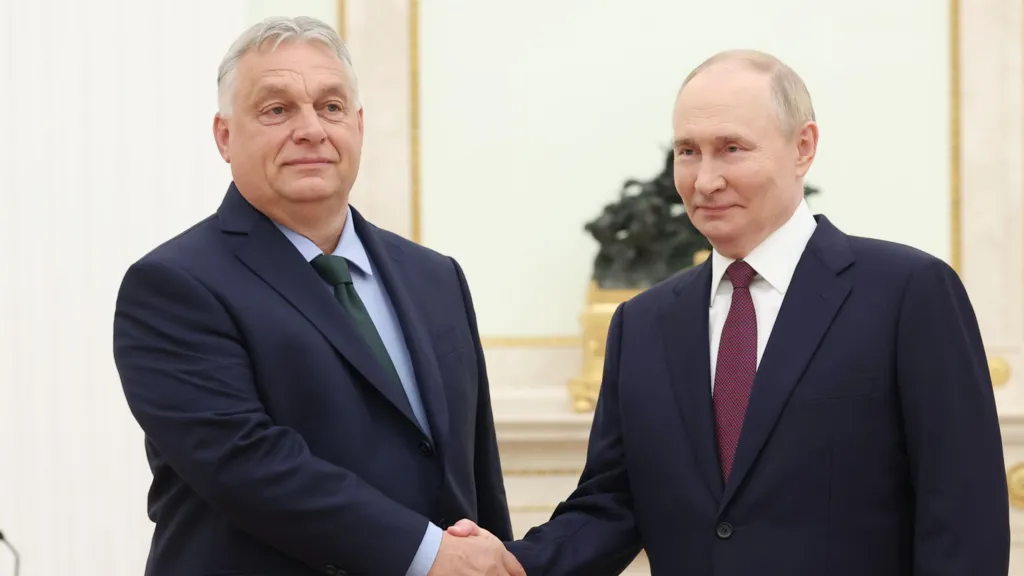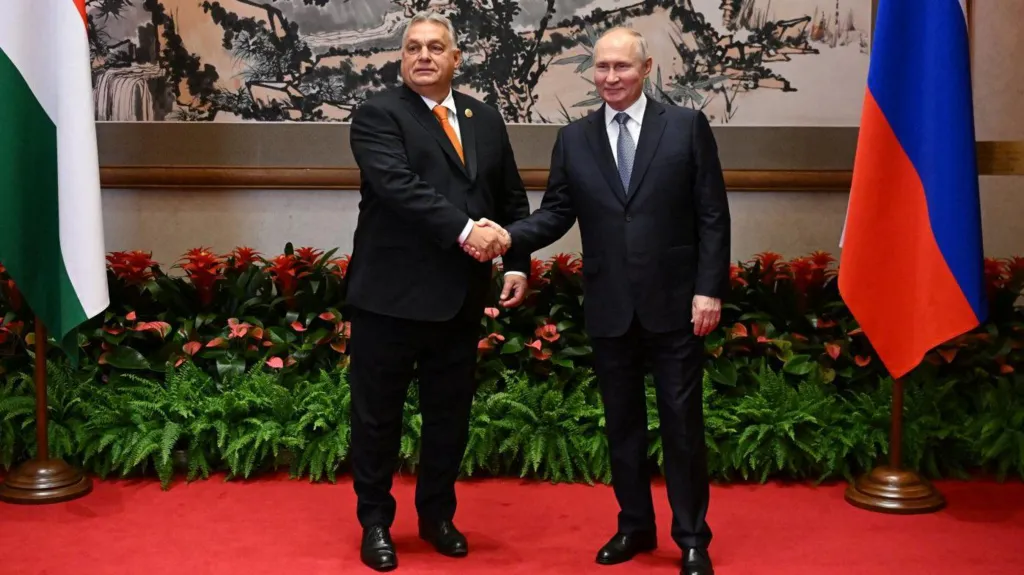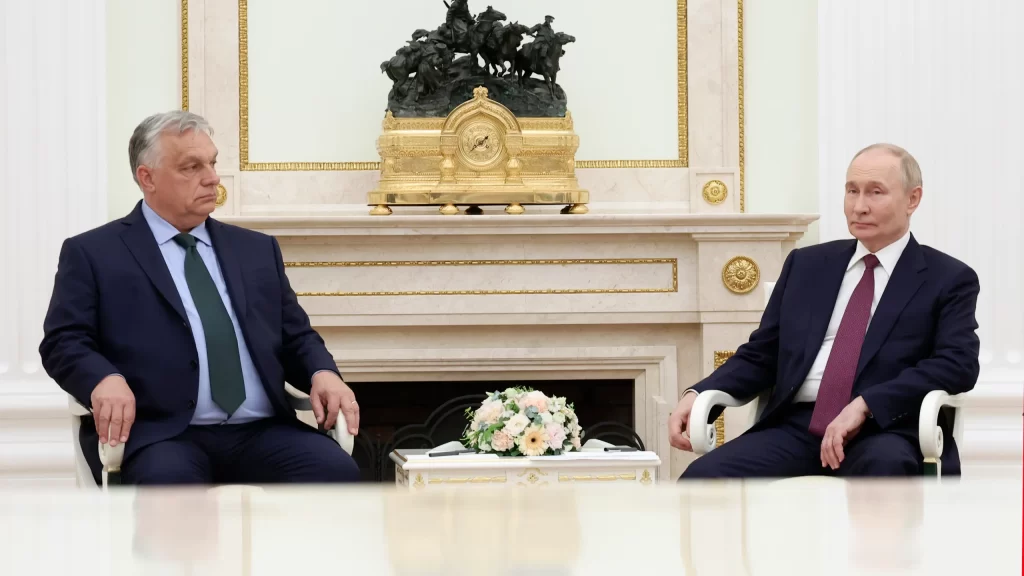Hungarian Prime Minister Viktor Orban’s controversial meeting with Russian President Vladimir Putin in Moscow on Friday has ignited a firestorm of criticism from European Union leaders and the Ukrainian government. The visit, which Orban framed as a “peace mission,” came just three days after his meeting with Ukrainian President Volodymyr Zelensky in Kyiv, underscoring Hungary’s complex position in the ongoing conflict.

Orban, who has maintained close ties with the Kremlin despite Russia’s full-scale invasion of Ukraine in 2022, described the several-hour-long meeting as a step towards restoring dialogue. However, he acknowledged that Russia and Ukraine remain “far apart” in their views on achieving peace. Putin reiterated his previously rejected proposal for Ukraine to withdraw from regions in the south and east, including areas Russia does not currently occupy.

The timing of Orban’s visit is particularly contentious, as Hungary has just assumed the presidency of the Council of the European Union. EU leaders, including European Council President Charles Michel and European Commission head Ursula von der Leyen, strongly emphasized that Orban was not acting on behalf of the bloc. Michel stated unequivocally that the “EU rotating presidency has no mandate to engage with Russia on behalf of the EU.”
Ukraine’s foreign ministry also condemned the visit, reiterating the principle of “no agreements on Ukraine without Ukraine.” This reaction highlights the ongoing tensions between Kyiv and Budapest, exacerbated by Orban’s skepticism about Ukraine’s military prospects and his criticism of Western support for the country.
Orban’s dual visits to Kyiv and Moscow within days of each other showcase his attempts to position Hungary as a potential mediator in the conflict. However, his proposal for a quick ceasefire to speed up peace negotiations has been met with skepticism, particularly from Ukrainians who fear such a move would only cement Russia’s territorial gains.

The Hungarian leader’s stance has been a source of friction within the EU. He previously slowed agreement on a €50bn EU aid package for Ukraine and has been a vocal critic of Western support for Kyiv. His visit to Moscow, the first in 12 years, contrasts sharply with his repeated meetings with Putin during the same period.
As Hungary assumes its influential role in the EU Council presidency, Orban’s actions continue to raise questions about the bloc’s unity in its approach to the Russia-Ukraine conflict. His efforts to position Hungary as a bridge between East and West are likely to face ongoing scrutiny and criticism from EU partners and Ukraine alike.
This diplomatic maneuver by Orban highlights the complex geopolitical landscape in Europe, where national interests, historical ties, and the broader EU stance on the Ukraine conflict intersect, often creating tensions and contradictions in policy approaches.



